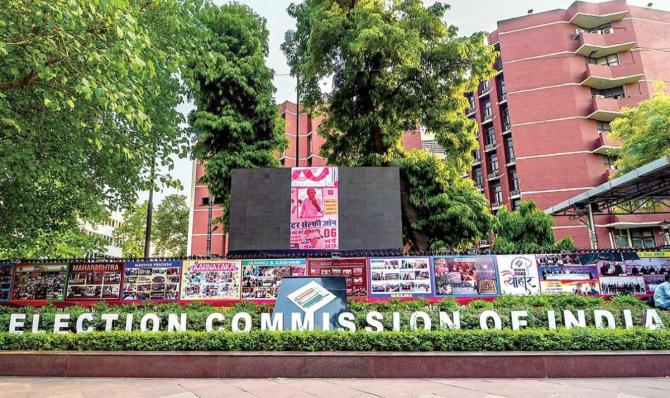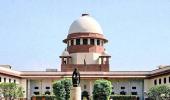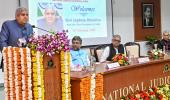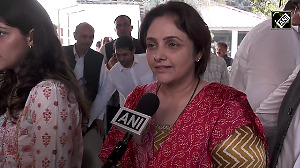The Supreme Court on Tuesday said it would on February 19 take up on 'priority basis' the pleas against the appointments of the chief election commissioner and election commissioners under the 2023 law.

A bench of Justices Surya Kant and N Kotiswar Singh was informed by advocate Prashant Bhushan, appearing for an NGO, that despite the Constitution bench verdict of 2023 directing the selection and appointment of the CEC and ECs through a panel including the Chief Justice of India, the government excluded the CJI and made a 'mockery of democracy'.
'The matter is listed on February 19 but it is listed as item number 41. The government has appointed the CEC and EC as per 2023 law disregarding the view taken by a Constitution bench. Kindly take up on top of the board as the matter requires urgent consideration,' Bhushan said.
Advocate Varun Thakur, appearing for petitioner Jaya Thakur, said three appointments were made by the government under the new law, which was under challenge.
The bench assured Bhushan and other parties that after some urgent listed matters, it would take up the petitions for hearing on February 19.
On February 17, the government appointed EC Gyanesh Kumar as the next CEC.
Kumar is the first CEC to be appointed under the new law and his term would run till January 26, 2029, days before the EC is expected to announce the schedule of the next Lok Sabha election.
Vivek Joshi, a 1989-batch Haryana-cadre IAS officer, was appointed as an election commissioner.
Born on May 21, 1966, Joshi, 58, would serve in the poll panel till 2031.
According to the law, a CEC or an EC retires at 65 or can have a tenure in the poll panel for six years.
On February 12, the top court fixed February 19 to hear pleas against the appointment of the CEC and EC under the 2023 law saying if anything happens in the interregnum, the consequences were bound to follow.
It said the issue would be decided on merit and finally.
Bhushan had submitted that the 2023 verdict held that the election commissioners have to be selected for appointment by an independent panel comprising the prime minister, Leader of Opposition and Chief Justice of India.
'They have brought an Act by which they have removed the chief justice and brought in another minister, effectively making the commissioners appointment only at the pleasure of the government. You need to have an independent committee to appoint the election commissioners,' he said.
On March 15, 2024, the top court refused to stay the appointments of the new ECs under the 2023 law which excluded the CJI from the selection panel and deferred the hearing on a batch of pleas challenging the appointments.
The apex court told the petitioners that the March 2, 2023, verdict directed for the three-member panel comprising the prime minister, leader of the Opposition and the CJI to operate till Parliament enacted a law.
The NGO Association for Democratic Reforms has challenged the CJI's exclusion and contended the election commission should be insulated from 'political' and 'executive interference' for maintaining a healthy democracy.
ADR's plea alleged the verdict was overruled by the Centre without removing its basis and the composition of the selection committee under the new law which amounted to excessive interference of the executive in the appointments and was detrimental to the independence of the poll panel.
Former IAS officers Gyanesh Kumar and Sukhbir Sandhu were recommended to be appointed as ECs in 2024 by a selection panel chaired by Prime Minister Narendra D Modi under the new law.
The NGO challenged the validity and sought a stay on the operation of Section 7 of the Chief Election Commissioner and Other Election Commissioners Act, 2023, which excluded the CJI.
The apex court's March 2, 2023 verdict held that leaving the appointment of the ECs and CEC in the hands of the executive would be detrimental to the health of the country's democracy and the holding of free and fair elections.











 © 2025
© 2025